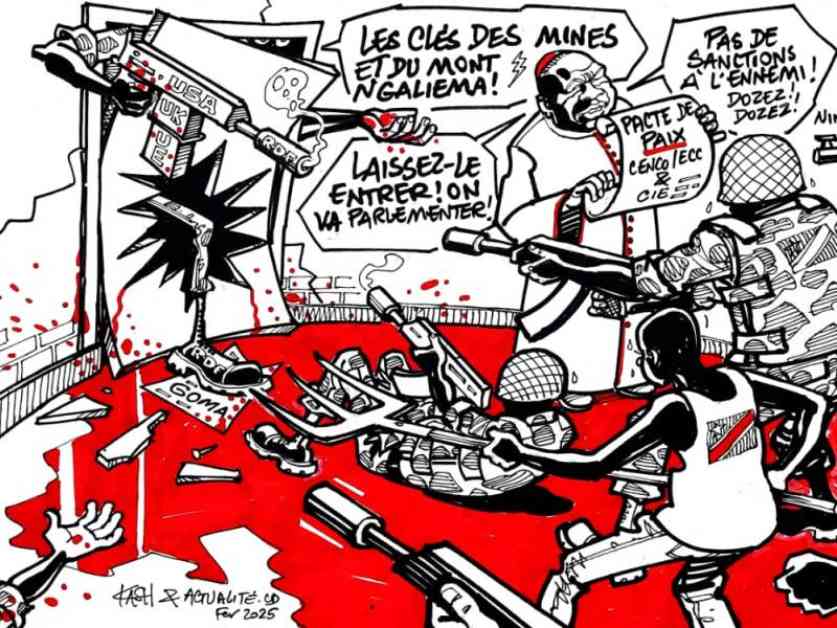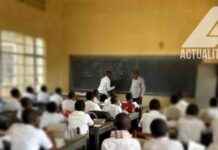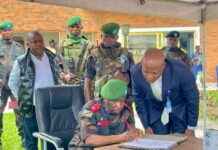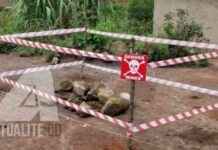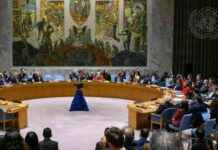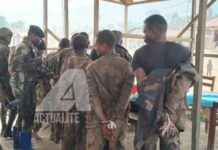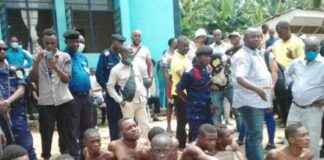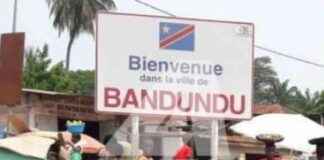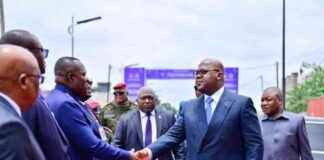A delegation from the Catholic and Protestant Churches of the DRC recently met with Rwandan President Paul Kagame as part of a project called the “Social Pact for Peace and Coexistence in the DRC.” This initiative, led by the CENCO and the Church of Christ in Congo (ECC), aims to facilitate a regional dialogue to address the conflicts plaguing the eastern part of the country. Prior to this meeting, religious leaders had engaged in discussions with several Congolese political figures, as well as with Corneille Nangaa, the coordinator of the AFC/M23, advocating for a ceasefire and the establishment of a humanitarian corridor in Goma.
The goal of this project is to organize an inclusive national dialogue to strengthen national cohesion and propose sustainable solutions to the security crisis. Monsignor Donatien Nshole, the Secretary-General of CENCO, emphasizes the importance of these consultations in order to prevent resorting to arms and promote a peaceful approach. Despite President Tshisekedi’s refusal to negotiate with the M23, the Churches believe that an effective dialogue must involve all stakeholders in the conflict, including armed groups and political figures in exile.
To broaden the scope of their initiative regionally, CENCO and ECC have sought the support of leaders such as Emmerson Mnangagwa, the President of Zimbabwe and current SADC chair, as well as William Ruto, the President of Kenya. They stress the need for a comprehensive and coordinated approach to establish lasting peace in the DRC and the Great Lakes region, highlighting the urgency of addressing the suffering of civilian populations.
Building Bridges through Interfaith Cooperation
The meeting between the Church representatives and President Kagame signifies a significant step towards fostering interfaith cooperation in addressing the complex challenges facing the DRC. By engaging in dialogue with political leaders and armed groups, religious institutions are demonstrating a commitment to finding peaceful solutions and promoting reconciliation among conflicting parties. This collaborative effort showcases the influential role that faith-based organizations can play in promoting peace and stability in conflict-affected regions.
Challenges and Opportunities for Sustainable Peace
While the Social Pact for Peace and Coexistence initiative holds promise for advancing peacebuilding efforts in the DRC, it also faces numerous challenges. The reluctance of certain political actors to engage in dialogue, as evidenced by President Tshisekedi’s stance towards the M23, underscores the complexities involved in reaching a consensus among all stakeholders. However, the Churches’ insistence on inclusivity and their engagement with regional leaders reflect a strategic approach to overcoming these obstacles and paving the way for a more peaceful future.
In conclusion, the collaborative efforts of the Catholic and Protestant Churches in the DRC to promote dialogue and reconciliation offer a beacon of hope amidst the ongoing conflicts in the region. By emphasizing the importance of inclusive national consultations and regional partnerships, these religious institutions are working towards building a foundation for sustainable peace and coexistence. As they continue to advocate for a peaceful resolution to the crisis in the DRC, their dedication to fostering interfaith cooperation serves as a powerful example of the transformative potential of faith-based initiatives in conflict resolution.
